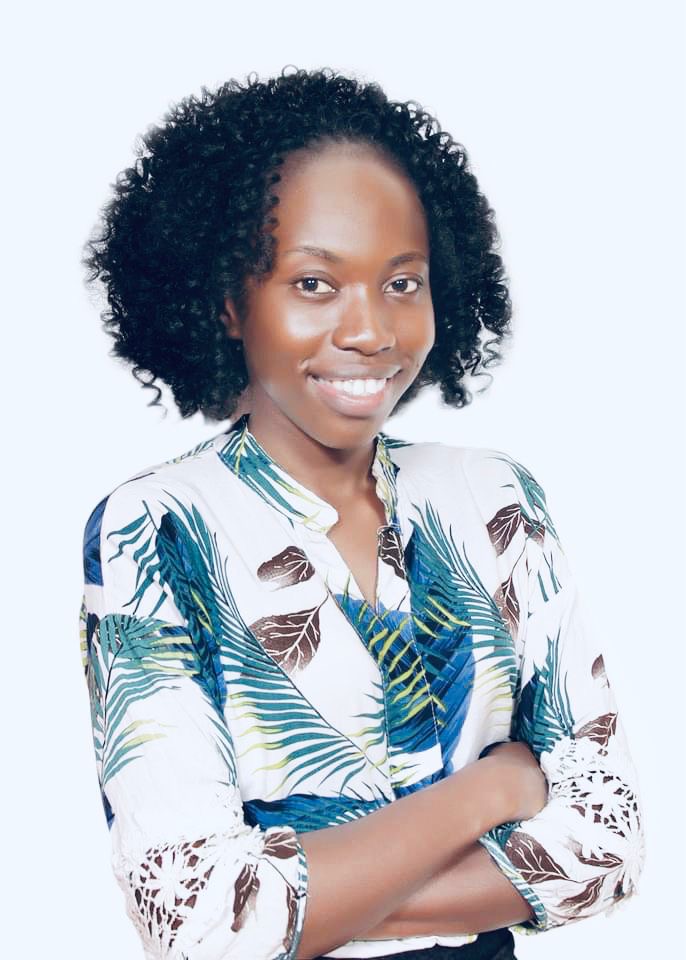Peace Monica Pimer is the Executive Director of the Nile Girls Forum, an organisation focused on empowering young women through leadership, governance, sexual and reproductive health, and economic development. Born and raised in Zombo, Uganda, Peace is a committed environmental human rights defender, integrating climate action into her work. She advocates for the inclusion of women and girls in environmental decision-making, highlighting the link between environmental protection and human rights. Through her leadership, Peace continues to drive change, ensuring the voices of vulnerable communities are central to climate action and environmental justice.
The Covid-19 pandemic, which confined many to their homes during the global lockdown in 2020, marked a turning point in Peace Pimer’s activism. As people stayed indoors, the world experienced cleaner air and healthier environments due to reduced carbon emissions from cars and factories. This period of reflection heightened Peace’s awareness of the importance of biodiversity and environmental conservation, leading to a pivotal shift in her focus.
In April 2021, Peace participated in a transformative three-day training on biodiversity, which shaped her thoughts on the urgent need for environmental action. This experience deepened her commitment to addressing critical environmental challenges and inspired her to integrate climate action into the agenda of the Nile Girls Forum. Founded in 2018, the Forum advocates for young women-led initiatives, focusing on building resilient adolescent girls and young women with an emphasis on leadership and governance, sexual and reproductive health and rights (SRHR), and economic development. The addition of climate action reflected Peace’s growing passion for environmental conservation as Uganda began easing lockdown restrictions.
“Women and girls are the most vulnerable during climate disasters. They bear the brunt of relocation with children and property, and their livelihoods—especially those dependent on natural resources like agriculture and water collection—are under constant threat. The emotional and physical labor increases when they must spend more time fetching water or caring for the sick and elderly during climate-induced crises,”
Peace Pimer Tweet
In her eyes, there is a strong connection between human rights and environmental justice. Environmental harm often directly impacts the fundamental rights of individuals and communities. Human rights encompass the right to life, health, clean air, water, food, and shelter—rights that are severely threatened by environmental degradation. When ecosystems are damaged or communities are exposed to pollutants or climate-related disasters, these basic human rights are compromised.
Addressing both human rights and environmental justice is essential, as environmental harm disproportionately affects vulnerable and marginalised groups, such as women, children, and those from less privileged backgrounds, who often lack the power to defend themselves. Environmental justice not only calls for the protection of the environment but also demands accountability for how environmental policies and practices affect people’s rights and well-being.
“Women play a critical role in advancing environmental justice, as they are often disproportionately affected by environmental harmDespite this, they are frequently excluded from key decision-making processes around solutions to these issues.”
Peace Pimer Tweet
To address this, the Nile Girls Forum focuses on enhancing the capacity of women environmental human rights defenders by providing them with the resources, training, and platforms they need to lead and advocate for change. By empowering women with knowledge, leadership skills, and support networks, the Forum ensures their voices are not only heard but are central in shaping policies and solutions to environmental injustice. The Forum also works to create opportunities for participation, foster inclusive dialogues, and challenge the systemic barriers that limit women’s involvement in environmental governance and advocacy, encouraging more women to take an active role in advancing environmental justice.
One of the most rewarding experiences in Peace’s career as an EHRD was conducting a climate education training for young women in the urban slums of Kamwokya, Banda, and Mutungo in Kampala. The training not only provided these women with valuable knowledge about climate change but also highlighted the crucial link between climate impacts and sexual reproductive health.
“One of the women who attended the training later appeared on a TV show hosted by West Nile Television, something she never thought she would do before,” Peace recalls. “It was a proud moment, not just for her, but for all of us. Since then, we’ve been conducting weekly sessions to equip more women, including leaders at the sub-county level.”
Peace Pimer Tweet
Peace has remained steadfast in her journey as an environmental human rights defender, holding close the words of a woman who said, “We are fighting for the land, yes, but we are also fighting for the future of our children. If we don’t protect this land, we lose everything.” These words have stayed with her, reminding her that environmental justice is not only about protecting ecosystems but also about safeguarding the very foundation of people’s lives and futures. The resilience of these communities in the face of adversity continues to motivate and drive her work.
"To effectively support environmental hrds, we must work collaboratively, recognising the immense power of collective action. Governments must prioritize legal protections, ensuring HRDs can advocate safely without fear of retaliation. Communities can contribute by actively participating in advocacy, sharing knowledge, and standing in solidarity with defenders. On an individual level, we can raise awareness, support campaigns, and advocate for policies that protect both the environment and the rights of defenders. Together, we can create a safer, more supportive environment for HRDs and safeguard both human rights and the planet for future generations."
Peace Pimer Tweet
By amplifying the voices of women and girls and ensuring their involvement in climate action, Peace continues to drive change in both local and global communities Through continued advocacy, education, and collective action, Peace believes we can build a world where both people and the planet thrive.

